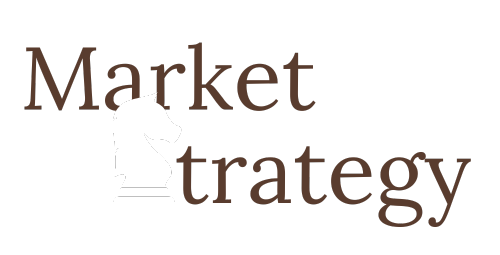But consider your own behavior. When was the last time you used Google Search for something? Understanding the true essence of seo digital marketing is the first step to appreciating its value.
Defining SEO Digital Marketing
Why SEO Matters in the Digital Marketing World
Breaking Down SEO into Key Strategies
Technical Optimization: The Backend Structure
On-Page Optimization: Creating Engaging, Reader-Focused Content
Off-Page Optimization: Building Authority
Understanding How Search Engines Actually Work
Crawling and Indexing
Ranking: Making Sense of It All
The Critical Connection Between SEO and Digital Marketing
SEO: Your Long-Term Investment
SEO Boosts Trust
Putting SEO into Action
Keyword Research: Speaking Your Audience's Language
Crafting Killer Content with Purpose
Competitive Analysis: Learning from the Field
URL and Snippet Optimization: Making Great First Impressions
The Future is Bright: SEO Digital Marketing in an AI World
Conclusion
SEO, or Search Engine Optimization, is a vital component of digital marketing. It's a set of practices aimed at increasing website visibility, driving organic traffic, and enhancing brand awareness. Ultimately, it involves making your website a more credible and valuable resource, especially on topics like digital marketing.
The goal is straightforward. You want individuals searching for products or services similar to yours to find your website easily. Ideally, your site should appear at the top of the search result pages.
Organic search is incredibly significant, responsible for a substantial portion of website traffic. A BrightEdge study in 2019 revealed that organic search accounts for 53% of all website traffic. This highlights the importance of ranking high in search results.
Search queries occur constantly. It's estimated that over 8.5 billion searches happen daily on Google Search. Google accounts for 91% of the global search engine market.
You've likely heard that the seo market is constantly changing. However, the core principles of search engine optimization remain relatively consistent. Think of SEO as having multiple layers or components, all working together.
Visualize a robust seo strategy as a house supported by three main pillars. These pillars are interconnected, not separate entities. This holistic approach is crucial for success.
Technical SEO: Focuses on the backend structure of your website to search engines crawl. *Improve site speed, ensure mobile-friendliness, and create a clear site architecture.
On-Page SEO: Deals with optimizing the content that visitors see on your website to include relevant keywords. *Optimize page titles, headers, descriptions, images, and text for readability and relevance.
On-Page SEO: Deals with optimizing the content that visitors see on your website to include relevant keywords. *Optimize page titles, headers, descriptions, images, and text for readability and relevance.
Technical optimization is the behind-the-scenes work that ensures your website is easily accessible to search engines. As Gary Illyes, a Google trends analyst, mentioned in a Reddit AMA, a crawlable site is fundamental. Without this, your other SEO efforts may be in vain.
Factors like loading speed, mobile-friendliness, and a logical site architecture are crucial. Search engines rely on these elements to efficiently discover web content and understand your site's purpose. A well-structured site improves your chances of ranking higher.
On-page optimization focuses on what the visitor sees and interacts with on your website. The goal is to create content that is clear, appealing, and relevant to your target audience. This involves thoughtful use of words and appealing presentation of value.
This includes optimizing page titles, using keyword optimization data for insights, headers, meta descriptions, images, videos, and text. Everything a visitor sees and reads should be optimized. On-page seo enhances the overall experience on your site.
Off-page SEO involves activities conducted outside your website to enhance its reputation. Much of this relies on encouraging others to link to your content. Think of inbound marketing being greatly impacted by this off-page activity.
This can include social media campaigns, outreach to build quality backlinks, and managing reviews or citations. Focusing on activities that naturally encourage others to talk about and recommend your site will boost your off-page SEO. These inbound links help to gain better positioning.
Think of search engines, such as Google, as vast digital libraries. However, instead of storing books, they store information about web pages. These digital indexes are constantly updated and refined.
Libraries have existed since ancient times. There's evidence of libraries dating back as early as the seventh century BC. They continue to evolve with technological advancements.
Search engines gather information by "crawling" the internet using web crawlers. These virtual robots, also known as "spiders," constantly traverse the web. The engines crawl and navigate from page to page.
When these crawlers find a page, they analyze its content. The search engines crawl the content and file away details to assist in ranking them in search results. This indexing process is crucial for determining where a page will appear in search results.
A search engine doesn't just display any result; it aims to provide the most relevant and useful content. Google offers Google Search Essentials. It is there to educate website managers and content creators about optimization techniques.
The engine evaluates all indexed content. Then, Google determines how well this content aligns with the user's search queries. This ranking process is complex, involving numerous factors to deliver the best possible results.
SEO digital marketing is an integral part of your overall strategy. SEO specifically focuses on improving your site's visibility in organic (non-paid) search results. This improves your search engine ranking, as outlined in Google’s SEO starter guide.
Digital marketing encompasses various tactics: social media posts, email marketing, pay-per-click campaigns, and more. Integrating strong SEO practices makes your entire online presence more cohesive and effective.
The global SEO industry is projected to reach $122.11 billion by 2028. This demonstrates that businesses recognize the long-term value of organic traffic. The consistent traffic source can pay off if done well.
Paid search advertising is effective, but its impact is directly tied to campaign budgets. When the funding ceases, the traffic typically stops. However, effective SEO creates a foundation that can provide lasting value for months or even years.
When your site ranks highly for searches related to your offerings, it significantly enhances trust. Users tend to believe that search engines filter out the best content. Content also shows up well when focusing on avoiding duplicate content.
If Google prominently displays your content, it suggests that you're a knowledgeable and reliable source. This perception creates an automatic advantage, fostering brand awareness and potentially leading to future business. Using Google Search Console can help, too.
Now that we understand the concepts, how do we apply them? The application of SEO services begins in the planning phase.
Here are some key strategies to integrate SEO into your digital marketing plans: Consider it to help create a good marketing strategy.
Stop guessing what your audience is searching for. Instead, utilize keyword research tools to gain valuable insights to have the right relevant keywords. Tools like Google Keyword Planner, Ahrefs, and Moz can provide clear direction.
Identify the phrases your ideal customers are using in their searches. Then, incorporate those long-tail keywords and phrases into your content. Leverage seo and use content marketing to get an advantage.
Every page on your website should address a specific need. Before creating content, think like your potential reader. Providing high content quality is important to rank and be visible on the search engine land.
Ask yourself: What are they searching for? What do they hope to gain from finding my site? Providing valuable content directly addresses their needs, leading to more engagement and reducing bounce rate.
Analyze competitors who are ranking well for your target keywords. Examine their strategies to understand what works and identify areas for improvement. It helps to have marketing automation in place.
While every website is different, analyzing successful competitors can provide valuable insights. This saves time and effort that might be wasted on ineffective tactics. Avoid using black hat seo and those methods, though.
A confusing or automatically generated URL is uninformative to both users and search engines. A clear, descriptive URL, like ‘www.yoursite.com/healthy-recipes’, is far more user-friendly and engaging. Keep things simple and use good snippets to make things better for your user experience.
Conversely, ‘www.yoursite.com/page1’ is vague. It makes users hesitant, as they're unsure of the page's content. A descriptive URL provides immediate context, improving click-through rates.
AI is undeniably transforming the landscape of search. Major players are introducing increasingly sophisticated tools. Use marketing automation and other ways to automate and drive traffic.
Google's AI Overviews and Bing's generative search results necessitate adaptable, standout content. This shift emphasizes the importance of classic SEO principles, particularly the human touch.
Focusing on natural, engaging writing is crucial in this evolving digital environment. The title tag will be important. This focus on site traffic becomes more critical with the increased automation in search engine crawling.
Think of seo digital marketing as your comprehensive toolbox, with SEO as a key instrument within it. Strong search practices enhance all your digital efforts by ensuring you remain competitive and relevant. It keeps you relevant for when people perform their google search.
Optimize your content for performance, growth, and visibility in search engines work and search engine optimization. When a user conducts search queries on platforms like Google, you want to be top-of-mind. This approach can generate higher-quality leads and contribute to sustained business growth.
As seo marketing techniques and strategies continue to evolve, companies that pay close attention will likely see increased growth. Adaptability and a focus on valuable content will be key to thriving in the future of search. Good use of your meta description helps, too.
.png)










